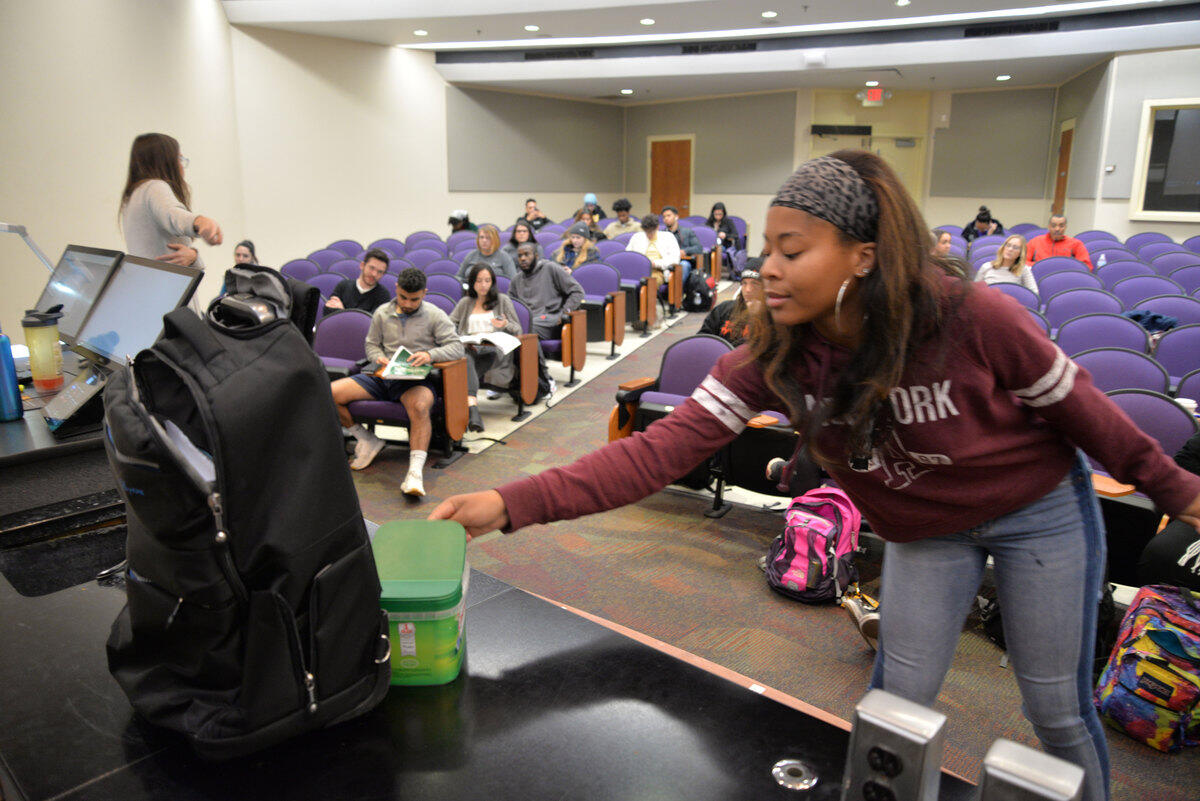
Nov. 11, 2019
How VCU students’ pocket change is helping low-income families in a rural Virginia community
Share this story
A couple years ago, children’s book author Marc Tyler Nobleman visited North Fork Middle School in Quicksburg, Virginia — a rural community in Shenandoah County, about two hours west of Richmond — and learned that some of the students lived in homes with dirt floors, some had no running water, some relied on wood stoves or kerosene heaters for warmth, and others take a bus for more than an hour to get to school.
“Amid these hardships, there is light,” Nobleman wrote of his experience on his blog at the time. “I was told in confidence — and then permitted to share — that on holidays, including Thanksgiving and Christmas, the administration and staff buy food with their own money and personally deliver it to needy families in their community. They do this without alerting any press or calling any attention to it during school hours.”
Rebecca Durfee, a teaching assistant professor and assistant chair of the Department of Statistical Sciences and Operations Research in the College of Humanities and Sciences at Virginia Commonwealth University, has been friends with Nobleman since elementary school. When she read his account of the hardships in Quicksburg, she wanted to help.
“I thought, I want to do something. I want to send some money out to Quicksburg and help these teachers provide these families with food and necessities,” she said. “And then I realized I have 250 students.”
I thought, I want to do something. I want to send some money out to Quicksburg and help these teachers provide these families with food and necessities. And then I realized I have 250 students.
“We will create a spontaneous unscripted story,” Byland said. “It’s a real gift when you watch improvisers create something magical out of a word. It’s a lovely give and take with the audience.”
She asked her students to dig around in their backpacks and pockets to see if they had any spare change. If all of her students chipped in a quarter, she thought, she could send a little over $60 to help the teachers pay for toothbrushes, socks, shampoo, food and other necessities for Quicksburg families.
That was in fall 2017. Five semesters later, Durfee’s students have contributed more than $1,000 in cash and other donations.
“Their generosity has allowed us to provide holiday meals, clothing, hygiene products and school supplies for our students who are in need,” said P. Melissa H. Harrell, a reading specialist at North Fork Middle School. “The fact that college students from Richmond who did not know of us heard of our needs and wanted to help. They opened their hearts to us and that is an example of generosity and caring that can’t be measured.”
Durfee introduced students in her courses — Statistical Thinking, Concepts of Statistics, and Data Analysis and Statistics for Elementary Education — to the Quicksburg project last week. In one day, her students donated $65, dropping pocket change in a plastic box that will sit alongside Durfee’s lectern for the next couple of weeks.
“People will often talk negatively about young people, but that hasn’t been my experience,” she said. “I see hard-working, generous, genuinely good people sitting in front of me every day, and this initiative is proof. Students generally aren’t in a place to give too much financially, but this shows that their hearts are in the right place. When given the chance to be a part of something bigger, they eagerly do their part.”
Durfee makes it clear that her students are not expected to give anything, and certainly not expected to give anything more than they can easily afford.
“I know you guys are not in a position to donate anything huge financially,” she told them last week. “I don’t want anyone to donate anything that is going to create a hardship for yourself. If you need every penny, don’t donate and don’t feel bad. But what I’m going to ask you to [do is] look in your bags: Do you guys have any change floating around in the bottom of your bag right now? Anything that you didn’t realize that you have? If you do, if you could come up and put it in this bucket, I’ll send that money out to Quicksburg in a couple weeks.”
Subscribe to VCU News
Subscribe to VCU News at newsletter.vcu.edu and receive a selection of stories, videos, photos, news clips and event listings in your inbox.









